Table of Contents
Jean-Philippe (JP), is a Humanitarian Nurse who often is found nursing in war zones. JP who is an Emergency/Trauma Registered Nurse from Australia has kindly written for The Nurse Break about his job working as a nurse for the International Federation of the Red Cross (IFRC) and ICRC in countries including as Myanmar, Syria, Egypt, Jordan, Nigeria and more…
Join our new FB group Rural & Remote Nursing | The Australian Outback
Similar Humanitarian nursing articles
Disclaimer: Opinions/Comments are my own and not the views of my employer.
About JP
My name is Jean-Philippe Miller (although everyone calls me JP), I am from Melbourne Australia and I have been nursing since 2006. I graduated from Victoria University. I didn’t have any ‘career’ before nursing, just random jobs, although I did work as an orderly at the Alfred for a year while I was at University. My passions include photography and travelling the world (I love getting to know new cultures and destinations) and the Spanish language (there is nothing more satisfying than being able to communicate in another language!)
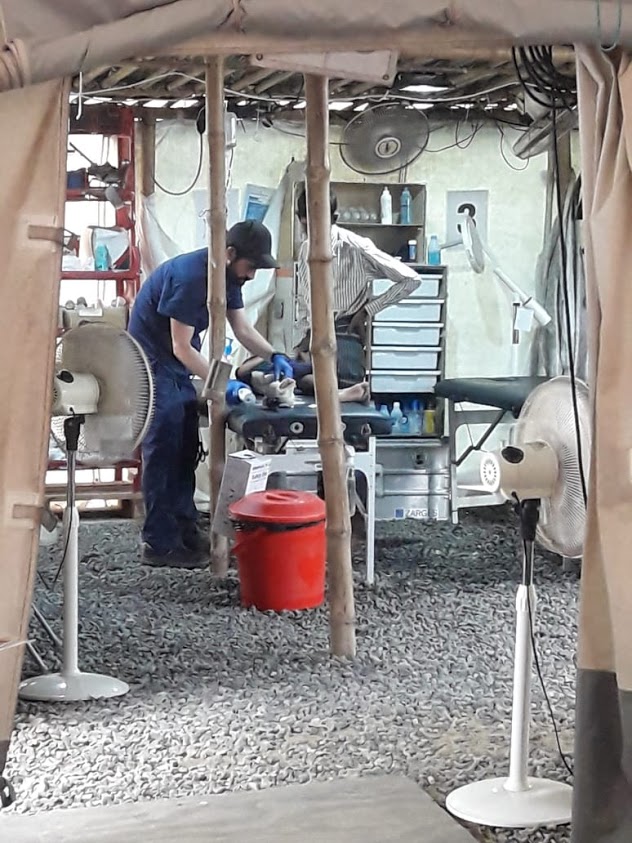
Credit: JP
What was your journey to starting nursing?
I didn’t really choose nursing outright, I kind of fell into it. My initial interest stemmed from learning first aid, then I was captivated with the idea of becoming a paramedic. Then I started thinking about a career in nursing, and it just ended up being a logical choice.
It wasn’t as restrictive or streamlined as paramedics and you had employer choice and flexibility. Nursing offered me job security, variety and lots of freedom. It ticked all the boxes and I was able to help those most in need! My enrolment into nursing was very last minute, but it’s definitely one of the best decisions I’ve ever made. I think it was just in my blood, my mum is an incredibly caring person who will always go out of her way to look after others. So it must have rubbed off on me!

(Photo: Mari Aftret Mortvedt, ICRC).
What different areas of nursing have you worked in?
I started my nursing career in Oncology/Haematology at the Alfred Hospital, predominantly looking after patients undergoing Bone Marrow Transplants. I found it an extremely interesting and rewarding field but it was equally difficult and exhausting at times. After 2 years in Oncology/Haematology I took a break and then moved down into the Emergency Department, this is where I had always dreamt of working since graduating and I have been working in this department since.
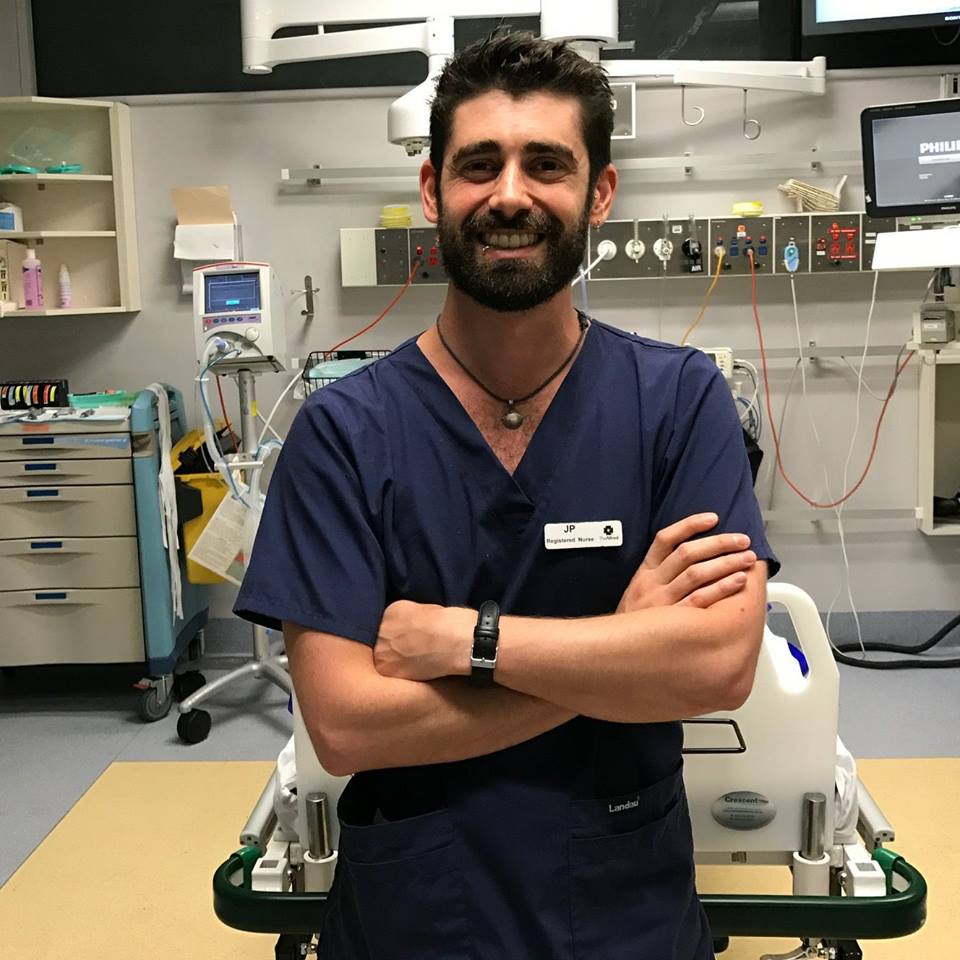
Credit: JP
Not long after I started there I completed my Postgraduate Certificate in Critical Care so that I could learn to look after the really unwell patients in Resuscitation and Trauma. This was a new and challenging environment that provided me with new skills, a higher level of knowledge and a diverse exposure to different clinical scenarios.
Guatemala
But I was keen to explore the world and experience other cultures, so I took extended leave to travel and volunteered in a remote medical clinic in Guatemala. This was an incredibly important experience for me and really was the foundation that led me to pursue a career in the Humanitarian field. From this time on I started networking and researching how best to become involved, I talked to delegates who worked for Red Cross and Médecins San Frontiers (MSF), and I commenced my Masters in Public Health.
In 2014 I got my break and completed a short-term contract for the Australian Red Cross International Health Team in Melbourne. This opened up new opportunities for me and that same year I undertook my first deployment with the International Committee of the Red Cross (ICRC).
South Sudan and Myanmar
My first deployment was to South Sudan as part of a Mobile Surgical Team (MST). It was a difficult mission but an amazing experience. I followed it up with a second mission in Kachin State, Myanmar teaching First Aid to community first responders and Train-the-trainer Instructor courses.
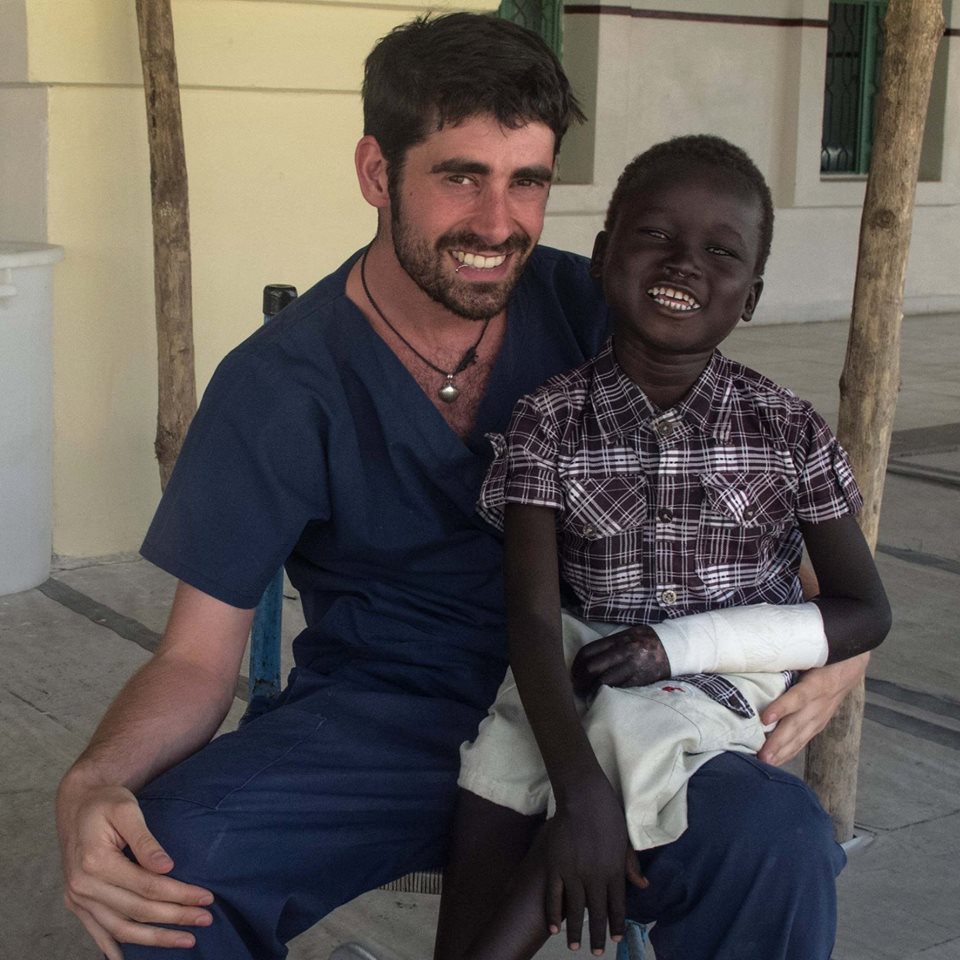
Credit: JP
Egypt, Jordan, Nigeria, Bangladesh
Throughout this time I continued to study and work at the Alfred Emergency Department. From 2016 I began co-instructing some Emergency Room Trauma Courses with ICRC in locations like Egypt, Jordan and Nigeria. More recently in 2018 I started working with the International Federation of the Red Cross (IFRC) as a nurse in the Emergency Response Unit (ERU), deploying twice to the Myanmar population displacement in Bangladesh.

Credit: JP

Credit: JP
2019, Syria
This year I have been fortunate enough to deploy on a joint project with the Norwegian Red Cross and ICRC to help set-up a field hospital in North-East Syria. In fact that’s where I am right now…

(Photo: Mari Aftret Mortvedt, ICRC).
Source: https://avarchives.icrc.org/Picture/141361 / Mari Aftret Mortvedt, ICRC.
The field hospital is joint initiative between the ICRC, the Syrian Arab Red Crescent and the Norwegian Red Cross, aimed at providing medical care for some of the most vulnerable people living in the camp. The hospital is providing life saving surgical assistance to people who are in desperate need of medical attention. The situation in Al-Hol camp is overwhelming and dire. Since December 2018, more than 63,000 people have arrived in the camp. Today, about 74,000 people live in the camp. Around 90 percent of those living in the camp are women and children; an estimated two-thirds are children. The medical needs remains huge, including mother and child attention, surgery, mental health and physical rehabilitation. A particular concern is the large number of weapon-wounded patients who have limited access to surgical and post-surgical care
Source:
JP has been in the notorious al-Hawl refugee camp. al-Hawl is also spelled al-Hole, al-Hol, al-Hool and al-Houl, is a town in eastern al-Hasakah Governorate, northeastern Syria.
The camp has had “more than 63,000 people who have arrived in Al Hol since December had been without access to health care in their areas due to ongoing hostilities, lack of medicine, and damaged or destroyed health facilities” ICRC, 2019.
Read more: https://www.icrc.org/en/document/syria-field-hospital-opens-displaced-people-al-hol-camp

(Photo: Mari Aftret Mortvedt, ICRC).
What are you doing at the moment with your career?
Presently I am continuing my work at the Alfred Emergency and Trauma Centre but I am also engaging with IFRC and ICRC for deployments. I’m considering longer-term deployments and the potential for additional study. Nothing is fixed… we will see what happens… I don’t really have a 5 year plan but I do try to do something new and challenge myself every year!
What is some advice/thing’s nurses can do to better prepare themselves to get a job and work in your field?
If you are interested in humanitarian nursing I would encourage you to start by exploring volunteering opportunities. Projects run by Australian Volunteers International (AVI) or experience with organisations like Laos Friends Hospital for Children can provide you with extremely valuable experiences and demonstrate that you have exposure to working in different contexts and resource poor environments. Equally you can obtain a lot of this experience in Australia by undertaking a remote area nursing contract.
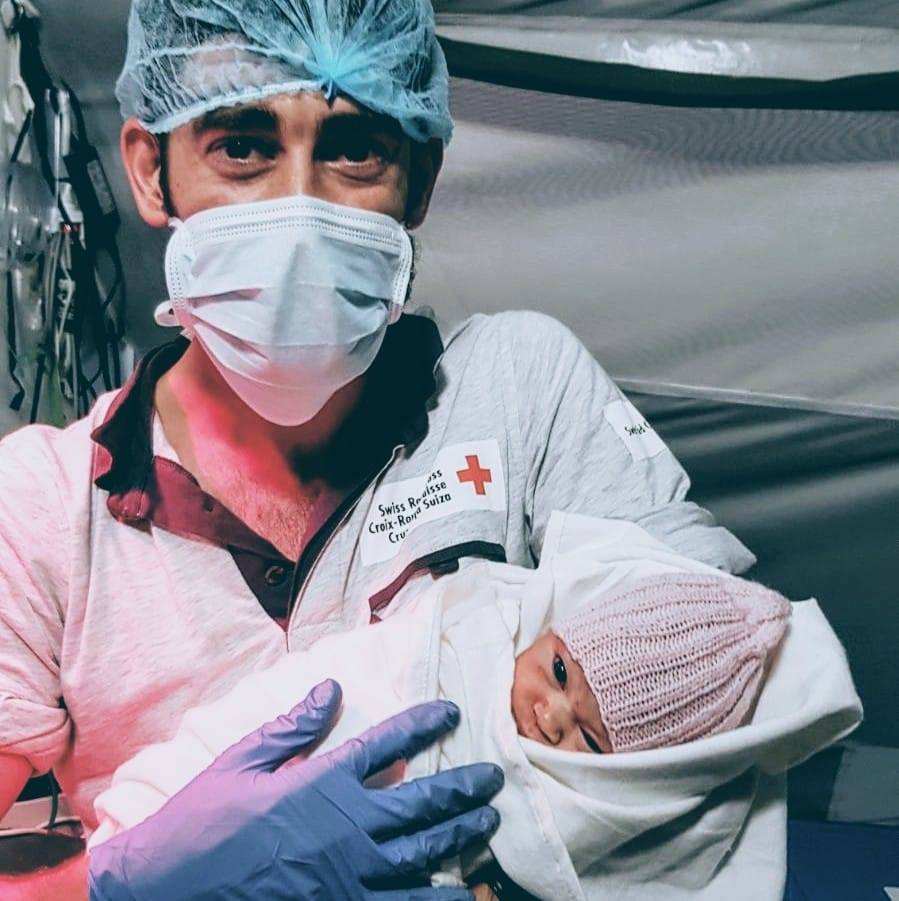
Now you can never learn enough, so if you want to get involved in humanitarian work, look at doing some additional study! Investigate humanitarian courses – RedR is a leader when it comes to training, especially for safety and security, but they also offer a means of joining a Humanitarian Roster. I would highly recommend their Hostile Environment Awareness Training (HEAT), this training alone can be useful – helping eager humanitarians develop skills but more importantly it can help allow them to identify whether or not they actually want to commit to working in areas of armed conflict, with the risks of violence, kidnapping, etc.
For something a little closer to home look at CRANAplus, they offer really high quality and comprehensive courses for remote health practitioners.
CRANAplus is the peak professional body for the remote and isolated health workforce of Australia.
Some skills which are transferable to resource poor environments. Additionally consider investing in Postgraduate studies in Public Health or International Health/Development, these are highly regarded in the field and provide invaluable knowledge.
Last but not least, consider learning a second language. Language skills are highly regarded in the humanitarian sector and can help open new doors. French & Arabic are probably the keystone languages, but any second language is better than no second language.
Can you share some night shift tips?
Night shift can be a great time to work, because there are less people around, its really just the barebones of the emergency department in operation. This can make your workplace a little less hectic and can offer a greater opportunity to learn! Having said that… no one really enjoys sleeping during the day and I don’t have any miracle recommendations for that. I don’t tend to sleep before my first night, its like a bonus day for me (I am exhausted come the end of the shift tho), so do what works for you. I would just advise you to remember the importance of work life balance, try to continue to eat well and exercise as difficult as it is!
What do you carry on you during a shift?
My stethoscope, my ID, a pen-torch and a few biros. If I’m working internationally I might also carry a pocket Sp02 reader, some cheat sheets for antibiotic administration and have any other guidelines I require in hardcopy on hand nearby.
What’s in your lunch box! (What are some food tips/ideas for shifts)?
I’m definitely not the most prepared nurse when it comes to food.
Some people prepare their entire week, that’s just not me.
Try keep it healthy when you can. I tend to like salads and tacos, they are easy to prepare and delicious!
What is one piece of advice for students you would give who are worried about starting a graduate year?
You don’t need to know everything, you just need to know when to ask for help! There is nothing more dangerous than arrogance! Take time to consolidate your learnings but also take time to rest-up. I must be honest and tell you I have rarely worked full time during my entire nursing career, even my graduate year I dropped to 0.8. I much prefer to live within my means and enjoy my downtime.
What’s the coolest thing you’ve done in your life so far?
That’s not easy to choose….
I’d have to say it’s a tie between sailing to Antarctica on Bark Europa and living with big cats in the Bolivian Jungle at Comunidad Inti Wara Yassi.
How do you deal with rude or mean colleagues?
Dust it off, there will always be some rude or mean colleagues, don’t take it to heart, especially when you are starting out. Find the nurses you connect with and debrief with them. Again you don’t need to know everything, you just need to know when to ask for help!
Read this post for a comprehensive list of organisations you can volunteer/work with overseas.
JP’s final note:
If you are interested in humanitarian nursing I would encourage you to start by exploring volunteering opportunities. Search engines like idealist and relief jobs can be useful for this. However, a really good starting off point is to look at projects run by Australian Volunteers International (AVI), but don’t stop there, because there are plenty of amazing overseas organisations running some incredible projects. For example you could volunteer with the Laos Friends Hospital for Children or the Floating Doctors in Panama. Or if the operating theatre and recovery is more your style, consider joining Mercy Ships, Operation Smile, or the Indian Train Hospital Lifeline Express. Regardless of which organisation you choose, you will likely gain extremely valuable experiences and exposure to working in different contexts and resource poor environments. But do your own research and talk to other people to avoid disappointment. Equally you can obtain a lot of this experience in Australia, purely by undertaking a remote area nursing contract.
We hope you enjoyed this fantastic post by JP and get inspired! Please share and comment below your thoughts.

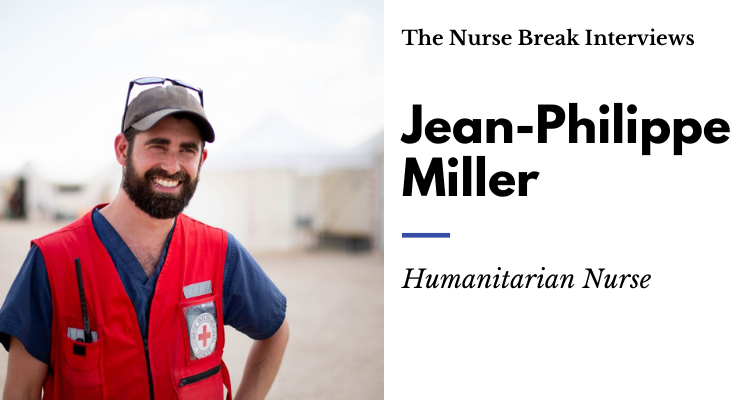




You must be logged in to post a comment.